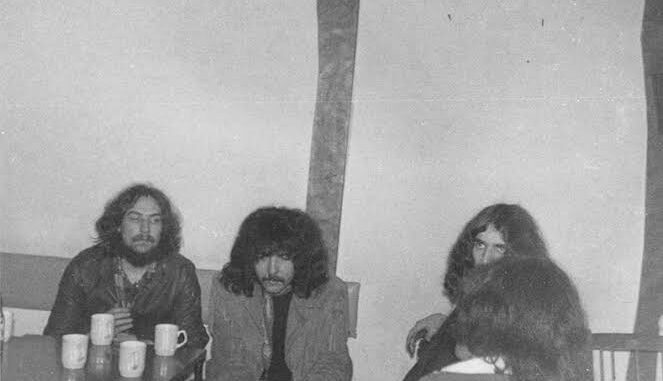
Back in 1968, they had the decidedly less sinister name of The Polka Tulk Blues Band, and came complete with a saxophonist and bottleneck guitar player.
A year later, they’d slimmed down, found a new name and invented heavy metal. Few bands are so inextricably linked with a musical genre, but Sabbath set the template for everyone from Motörhead and AC/DC to Metallica and Guns ‘n’ Roses.
Along the way, singer Ozzy Osbourne, who has died at the age of 76, became one of rock’s most influential figures, with an electrifying and unpredictable stage presence and an almost mythological intake of drugs.
If anyone has lived the debauched rock ‘n’ roll lifestyle,” he once admitted, “I suppose it’s me.”
So how did these four working class musicians from Aston, Birmingham rewrite the rules of rock
According to Osbourne, it was a visceral reaction to the “hippy-dippy” songs like San Francisco (Be Sure to Wear Some Flowers In Your Hair) that saturated the airwaves after 1967’s Summer Of Love.
“Flowers in your hair? Do me a favour,” he seethed in his 2010 autobiography.
“The only flowers anyone saw in Aston were the ones you threw in the hole after you when you croaked it at the age of 53 ‘cos you’d worked yourself to death.”
Teaming up with guitarist Tony Iommi, bassist Geezer Butler and drummer Bill Ward, Osbourne’s initial idea was to put a Brummie spin on the bluesy sound of Fleetwood Mac.
The band’s first name, Polka Tulk, was inspired by a brand of talcum powder his mum used.
After ditching the saxophone, they rebranded as Earth, taking as many gigs as they could manage, and even blagging a few extras.
“Whenever a big name band was coming to town, we’d load up the van with all our stuff and then just wait outside the venue on the off-chance they might not show up,” Osbourne later recalled.
It worked… but only once, when the band were asked to stand in for an absent Jethro Tull. “And after that, all the bookers knew our name,” Ozzy said.
Leave a Reply